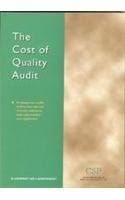You are in a board room meeting for the tech company Cloud Co. that specializes in cloud storage and the discussion entails the amount of debt the firm should have in it's capital structure. You hear some of the board members, some of who do not have a lot of direct financial experience talking to one another. The CFO and controller are there do given input and you are tasked with summing up the meeting notes and having a follow up discussion with the CFO. Here is what you hear and how you think the response should be: 1. Ben Rhodes, a board member who is a former state congressman says that Cloud Co. should increase it's debt level above it's current 40% level to upwards of 60% as interest rates are really low and interest can be written off. Which is most correct? a. Higher debt levels will increase operating leverage, which will lower the DTL b. Increasing debt should cause financial risk to rise and raise the cost of debt c. Increasing debt should increase the DFL which will raise the DTL all else equal d. Interest is not tax deductible so his statement is incorrect to begin with e. Both b&c 2. Another board member states that the cost of equity is the most expensive part of the capital structure of Cloud Co. The rest of the board agrees and you hear some other talk, some of which you try to decipher. Which answer do you think is most accurate. a. Common equity is most expensive because it gets paid off after bonds and hence riskier. b. Common equity holders own the firm which entitles them to distributions of profits, so other providers of capital are giving up this advantage. Common equity holders have unlimited upside in return potential whereas bonds do not d. The cost of equity to the firm is the required return to the equity investor. As such, all of the above are essentially true. e. All of the above C. 3. T/F The goal of the board is to find the % mix of debt and equity that will maximize the WACC as this will maximize share price. Several board members discuss using stock to raise capital as they do not want to hurt Cloud Co. credit rating. What makes the most sense: 4. a. Issuing stock will decrease the debt to ebitda ratio b. Issuing stock will increase ROE c. Issuing stock will decrease NI d. Issuing stock will increase EPS 5. T/F The board should look at Cloud Co's corporate debt YTM to get an idea of their current debt coupon cost and can add a historic equity risk premium or spread to that to derive their cost of equity 6. Fred and Bob own a medium size water delivery firm named W Corp. and they are each 50% partners. They have a 10,000 square foot factory with rent of 12k per month. They currently lease 3 trucks at $850 each per month and have 3 salaried employees they pay 25k each annually to operate their trucking routes. Sales are 800k per year, CM is 500k per year and EBIT is 250k. They have no debt. A. What is their DOL? B. How can the DOL be lowered? C. What will most likely happen to the firm if sales drop by half in regards to DOL and chapter 11 risk 7. Sales are booming so they want to expand by buying a competitor who is looking to retire called Z Corp. They will do this by using debt - a combination of bank debt and a private debt offering at an average rate of 8%. The EBIT for the new firm is 200k and the interest cost to purchase is 100k. A. What is the DFL of Corp? B. How can the DFL attributed to w Corp. be lowered if they buy 2 Corp? D. C. What will most likely happen w Corp if sales of Z Corp drop by half, in regards to DFL and chapter 11 risk 8, What is the DTL in #6 and 7 combined using pre-purchase DOL and post purchase DFL, and what will happen to EPS if Sales increase by 20% or fall by 20%








